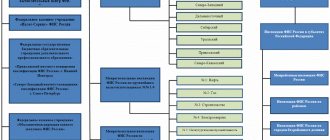Individual entrepreneurs, along with individuals, have personal property and non-property rights, the list of which is contained in the Constitution of the Russian Federation, the Civil Code and other legal acts of the Russian Federation. According to the legislation of the Russian Federation, individual entrepreneurs have both rights and obligations.
It should be noted that in comparison with other citizens of the Russian Federation, stateless persons, foreign citizens and citizens not engaged in entrepreneurial activities, the rights and responsibilities of individual entrepreneurs are much broader.
The basic rights and obligations of individual entrepreneurs are prescribed in the Constitution of the Russian Federation.
IP rights
The rights of an individual entrepreneur can be divided into three groups:
- Constitutional;
- Entrepreneurial;
- IP rights as a taxpayer.
Constitutional rights of individual entrepreneurs
- free use of the single economic space of the Russian Federation;
- freedom of economic activity (Article 8);
- free movement of their goods (as well as services and financial resources);
- free use of one's property and abilities for entrepreneurship (economic activity - Article 34);
- right to private property (Article 35);
- right to support competition.
Entrepreneurial rights of individual entrepreneurs
- the right to engage in legally permitted activities (business);
- the right to property for engaging in entrepreneurial activities;
- independently plan your own activities (including developing business plans and other types of planning);
- open current accounts at any bank branch;
- have your own seal and trademark;
- use hired labor (concluding civil contracts with citizens);
- choose consumers (suppliers) of your products;
- receive and use bank loans;
- enjoy government support for small businesses (in accordance with federal laws and programs);
- the right to medical, pension and social insurance;
- the right to receive municipal orders (for the manufacture of products);
- the right to perform work and provide services;
- protect your interests and rights from unlawful actions on the part of officials and government authorities.
Rights of individual entrepreneurs as taxpayers
In accordance with Article 21 (Part 1) of the Tax Code of the Russian Federation, individual entrepreneurs have the following rights:
- use tax benefits in accordance with legislation;
- obtaining free information about taxes and fees at the place of registration;
- obtaining a deferment (or installment plan), a loan in the manner prescribed by law;
- obtaining clarification from tax authorities in writing on issues related to fees and taxes;
- demand compliance with tax secrecy;
- demand compensation for losses in full caused by illegal decisions of tax authorities;
- demand compliance with laws on taxes and fees from tax authorities and officials;
- not to comply with unlawful demands from tax services and officials;
- demand a refund of amounts for excessive tax collection;
- demand an appeal against unlawful actions (or inaction) of tax authorities and officials in the manner prescribed by law.
Individual entrepreneur as a citizen
The basic, general civil rights and obligations of an individual entrepreneur in the Russian Federation are written down in (Constitution, Article of the Constitution). First of all, a person in Russia has the right:
- for life;
- personal integrity;
- privacy of personal life;
- free collection and use of information;
- inviolability of home;
- free movement;
- freedom of religion and freedom of speech;
- contacting state and municipal authorities and obtaining the necessary information;
- on property and labor;
- obtaining a calculation of property tax, land and transport taxes, and some other contributions paid as a citizen of the Russian Federation;
- social security, etc.
Of course, these rights have limits; their abuse is unacceptable.
At the same time, there are responsibilities:
- compliance with current, current legislation;
- environmental protection, including at home;
- fulfilling duties to family members and relatives;
- compensation for harm caused to life and health, etc.
Responsibilities of an individual entrepreneur
- carry out your business activities within the framework of the current legislation of the Russian Federation;
- obtain licenses for types of business activities specified by law;
- respect the rights and interests of consumers;
- bear responsibility for obligations;
- pay insurance premiums for employees to the state insurance fund;
- fulfill your obligations under contracts;
- conclude employment contracts (and collective agreements);
- pay taxes to the budget (state and local);
- preserve nature and the environment;
- take measures on occupational safety and health, environmental safety.
Rights and obligations of an individual entrepreneur as a participant in economic relations
Entrepreneurs are full participants in economic relations. Unlike tax relations, these are relations of legal equality. All their participants, with rare exceptions established in favor of public purposes, have equal rights and responsibilities to each other. Such rights and obligations are established by civil legislation (the Civil Code of the Russian Federation and laws issued in accordance with it) and business customs.
An individual entrepreneur - a participant in economic legal relations has the right:
- independently choose the directions and types of their activities, with the exception of activities that individual entrepreneurs cannot engage in (for example, the sale of alcoholic beverages, banking),
- independently choose partners and counterparties for transactions,
- attract investment in the form of credit funds,
- conduct joint activities with other entrepreneurs,
- demand that partners and contractors fulfill their obligations,
- apply for protection of their violated rights to the arbitration courts of the Russian Federation,
- have a seal or work without it,
An individual entrepreneur - a participant in economic legal relations is obliged to:
- fulfill your obligations to partners and contractors,
- provide the necessary documents to the individual entrepreneur for concluding an agreement, as this is included in the rules of business turnover,
- respect the rights of consumers - citizens,
Property liability of individual entrepreneurs
Property liability of an individual entrepreneur may arise as a result of violation of the legislation of the Russian Federation or in case of failure to fulfill contractual obligations. Property liability is also possible when disseminating false information (for example, about competitors) and when using someone else's brand or trademark.
An individual entrepreneur can terminate his activities on his own initiative. In order to close an individual entrepreneur, you must submit a corresponding application to the tax authority.
Termination of the activities of an individual entrepreneur can be carried out in court or in case of violation of the law (for example, due to lack of a license).
Taxation of individual entrepreneurs
Taxation in Russia for a private entrepreneur involves the same taxation regimes as for organizations. The patent system is also being added.
So, what is the tax for an individual entrepreneur?
Simplified taxation system in Russia for private entrepreneurs
According to the Tax Code, under the simplified tax system, an individual entrepreneur in the Russian Federation is exempt from paying: personal income tax, VAT, property tax for individuals (in relation to property used in business activities). Taxation and accounting of an individual entrepreneur requires special verification.
Within the framework of the simplified tax system you can pay:
- 6% income tax;
- 15% tax on the amount received after reducing the entrepreneur’s income for his expenses.
IP on the simplified tax system pays:
- monthly payments - personal income tax from employee salaries (if there are employees), insurance contributions.
- quarterly payments are advance payments according to a simplified scheme.
- fixed payments are contributions made by the entrepreneur to the Pension Fund “for himself”.
UTII
UTII does not depend on your profit and income. An entrepreneur’s income on UTII is subject to a single tax, calculated on the basis of coefficients that are applied to various parameters (for example, retail space, etc.). Individual entrepreneurs on UTII are exempt from paying VAT and property taxes of a private entrepreneur in Russia.
On the “imputation”, an entrepreneur with an individual form of entrepreneurship pays:
- monthly payments;
- quarterly (according to UTII);
- fixed payments to the Pension Fund. They are listed regardless of whether the entrepreneur has an activity or not.
UTII can be combined with other taxation and accounting regimes for individual entrepreneurs (OSNO or simplified tax system).
More details about taxation in Russia here.
Patent system of taxation of private entrepreneurship in Russia
A patent is issued only for certain types of activities. Based on the patent, the individual entrepreneur calculates and then pays the fixed taxes of a private entrepreneur in Russia. The patent is valid from 1 month to 1 year.
An entrepreneur on a patent pays:
- monthly payments;
- the cost of a patent - depending on the period of validity of the patent in 1-2 stages;
- contributions to the Pension Fund.
General system
This is the most complex regime under which taxation of private entrepreneurs is carried out in Russia.
Without submitting applications, all individual entrepreneurs are on OSNO. The regime includes: a list of taxes (property tax, VAT, personal income tax on individual entrepreneur income). Therefore, the number of entrepreneurs on the general regime is significantly less than those who are, for example, on the simplified regime. However, for certain types of activities, an individual entrepreneur in Russia is required to apply this scheme.
What does an individual entrepreneur pay on OSNO?
- 13% personal income tax;
- 10% or 18% VAT;
- monthly payments;
- payments to the Pension Fund;
- property tax.
You can learn more about the taxation of individual entrepreneurs in Russia and the specifics of the activities of private entrepreneurs by visiting our portal of individual entrepreneurs in the corresponding section of the site.
This might also be useful:
- On what basis does the IP operate?
- Is an individual entrepreneur a legal entity?
- Protection of the rights and interests of entrepreneurs
- Is it possible to get a small business loan from scratch?
- How can an individual entrepreneur get a loan?
- Development loans: options and prices
Is the information useful? Tell your friends and colleagues
Dear readers! The materials on the TBis.ru website are devoted to typical ways to resolve tax and legal issues, but each case is unique.
If you want to find out how to solve your specific issue, please contact the online consultant form. It's fast and free!
Rights as a taxpayer
The rights and obligations of individual entrepreneurs are also provided for by the Tax Code of the country. The main ones include:
- independent choice of tax regime;
- use of benefits;
- receiving clarifications and information regarding the payment of taxes and mandatory fees;
- guarantee of compliance by officials of regulatory authorities with the requirements of current legislation;
- appealing against unlawful acts of officials;
- the right to tax secrecy;
- reimbursement of wrongfully claimed taxes.
Comments
Rudolf Degtyarev 11/12/2015 at 5:03 pm # Reply
Entrepreneurial rights of individual entrepreneurs
There is a form: “Individual entrepreneur without forming a legal entity,” where the individual entrepreneur is not a legal entity. Can an individual entrepreneur be a legal entity? What is the difference?
Natalia 11/12/2015 at 5:49 pm # Reply
Rudolph, this is not a form, but a definition of an individual entrepreneur. The Civil Code of the Russian Federation directly states that an individual entrepreneur is an individual registered in the prescribed manner and carrying out entrepreneurial activities without forming a legal entity. An individual entrepreneur cannot be a legal entity.
Vitaly 11/22/2015 at 11:47 am # Reply
And what specific legislative act prescribes the above responsibilities of individual entrepreneurs?
Natalya 11/30/2015 at 6:05 pm # Reply
Hi all! I want to understand..tell me. I have an IP. I don't have a current account. I applied to the bank to get a loan, they refused (I work only with cash. Is it possible to open an account so that my income is taken into account?
Maria 12/03/2015 at 04:03 pm # Reply
Thank you, everything is timely and simple to understand.
Irina 04/28/2017 at 07:44 pm # Reply
Hello, I have a question. Does the management company have the right to charge for general house needs (my store is located on the 1st floor of the house) if the individual entrepreneur pays for electricity according to the meter, for water according to the meter, does not use the entrance, we pay for garbage separately, since an agreement has been concluded
Natalia 04/29/2017 at 14:05 # Reply
Irina, good afternoon. General house needs, even if you do not use the entrance and pay separately for garbage removal, are still available. They consist of technological losses through intra-house networks; lighting of access areas; energy for various equipment - pumps, automatic heat control systems; watering lawns and gardens; intra-house losses in water networks; flushing of communication networks; for the discharge of water in the riser, if the battery is being repaired in an apartment building; for technological drainage of the system in preparation for the heating season; for pressure testing of the heating system. Therefore, the management company has the right to charge you a fee for general house needs, excluding those items that are not relevant to you - cleaning the entrance, lighting the entrance; elevator maintenance, etc.
07/27/2017 at 20:10 # Reply
I am an individual entrepreneur, what rights do I have?
ostapx1 07/29/2017 at 01:30 pm # Reply
Hello. The same rights as all other employees, according to the Labor Code of the Russian Federation. This is a long enough question to answer in a comment.
01/10/2018 at 08:44 pm # Reply
Individual entrepreneur registration
How is the registration procedure carried out, what documents are required?
ostapx1 01/10/2018 at 08:57 pm # Reply
Hello. Step-by-step instructions for registering an individual entrepreneur are published here: https://tbis.ru/ip/kak-otkryt-ip-v-2015-godu
An individual entrepreneur is an individual registered in accordance with the procedure established by law and conducting business activities without forming a legal entity.
An individual conducting business activities without forming a legal entity, but not registered as an individual entrepreneur in violation of the requirements of the civil legislation of the Russian Federation, when performing the duties assigned to them by this Code, does not have the right to refer to the fact that he is not an individual entrepreneur.
Based on the federal law “On Registration of Legal Entities and Individual Entrepreneurs,” the functions of state registration of individual entrepreneurs are carried out by the authorized body. Today, by a decree of the Government of the Russian Federation, it has been established that this is the Federal Tax Service of the Russian Federation, in particular in Moscow - MI Federal Tax Service of the Russian Federation No. 46 for Moscow.
The entrepreneurial activities of citizens carried out without forming a legal entity are subject to the provisions of the Civil Code of the Russian Federation, which regulate the activities of legal entities that are commercial organizations, unless otherwise follows from the law, other legal acts or the essence of the legal relationship.
An individual acquires the status of an individual entrepreneur at the time of state registration as such and receipt from the tax authority of the appropriate certificate containing the number in the Unified State Register (USRIP). From this moment on, an individual entrepreneur bears the responsibilities established by tax legislation, which relate, in particular, to paying taxes and submitting appropriate tax reports.
Individual entrepreneur by power of attorney
Issuance by an individual entrepreneur of a notarized power of attorney to a person who carries out activities on behalf of the individual entrepreneur. In case of violation of the law by a trusted person, the individual entrepreneur becomes liable.
Rights and obligations of individual entrepreneurs
1. An individual entrepreneur has the rights and bears the responsibilities necessary to carry out any type of business activity not prohibited by law, the same as a legal entity.
2. The activities of an entrepreneur may be based on hired labor, which follows from Art. 3 Civil Code of the Russian Federation.
3. An entrepreneur does not have the right to create an enterprise while remaining the owner of the property transferred to him, because commercial organizations can be created exclusively in those organizational and legal forms that are provided for them in the Civil Code of the Russian Federation. When they are created, the property transferred in the formation of the authorized capital will belong exclusively to the legal entity. And only upon liquidation, after all settlements with creditors, including taxes and fees, will the property be returned to the founder - the entrepreneur.
4. Individual entrepreneurs can conduct production activities collectively on the basis of a simple partnership agreement, by virtue of which two or more persons (partners) undertake to combine their contributions and act jointly without forming a legal entity to make a profit or achieve another goal that does not contradict the law (agreement on joint activities).
Hiring workers by individual entrepreneurs
1. An entrepreneur without forming a legal entity enjoys the right to hire employees. According to previous legislation, a citizen engaged in entrepreneurial activity without forming a legal entity had no right to use hired labor. Now he can do this, which directly follows from paragraph 3 of Art. 25 of the Civil Code of the Russian Federation, according to which individual entrepreneurs can enter into employment contracts with citizens.
2. The basis for the emergence of labor relations between an employee and an employer is an employment contract, which defines the individual conditions under which the employee works in an enterprise, institution, organization, regardless of the form of ownership on which it is based. An employment contract is an agreement between a worker and an enterprise, institution, organization, according to which the worker undertakes to perform work in a certain specialty, qualification or position, subject to internal labor regulations, and the enterprise, institution, organization undertakes to pay the worker wages and ensure working conditions provided for by law on labor, collective agreement and agreement of the parties.
3. The concept of an employment contract should be limited from related civil law contracts also related to labor activity, since only persons who have entered into employment contracts are subject to labor legislation.
4. The subject of civil law contracts is only a certain result of labor, the fulfillment of an individual specific work task (order, assignment), carried out without subordinating the performer of the work to the internal labor regulations of the enterprise. Such agreements include: a contract for work performed by a citizen’s personal labor, an agency agreement; author's agreement, agreement on the performance of research and development work.
5. Work books are the main document about the labor activities of employees. They are kept for all employees who have worked for the employer for more than 5 days. If a juicy lady with a round ass appears in front of a man, he will certainly want to spread her buns in order to press his tongue on the anus. Beauties moan loudly with pleasure when they receive anilingus, because this is a great warm-up before sex. Chicks also lick men's asses to increase their arousal, and lesbians generally squeak when they engage in such debauchery. The requirement for the employer to maintain work records is also contained in the Law of the Russian Federation “On Employment of the Population in the Russian Federation”. However, new
The Labor Code of the Russian Federation (Part 3 of Article 66) prohibits individual employers from drawing up work books for persons hired for the first time and making entries in it about the hiring of persons employed by them. In this case, the document confirming the person’s employment will be an employment contract, which can be registered with local governments (to calculate length of service and other factors).
6. An entrepreneur is obliged to pay all insurance premiums when hiring employees (MHIF, PF, etc.)
Law on sanitary and epidemiological welfare of the population.
Chapter II. Rights and obligations of citizens, individual entrepreneurs and legal entities in the field of ensuring the sanitary and epidemiological well-being of the population
Article 9. Rights of individual entrepreneurs and legal entities
Individual entrepreneurs and legal entities have the right: to receive, in accordance with the legislation of the Russian Federation, from state authorities, local government bodies, bodies carrying out state sanitary and epidemiological supervision, information about the sanitary and epidemiological situation, the state of the environment, sanitary rules;
take part in the development by federal executive authorities, executive authorities of constituent entities of the Russian Federation, local government bodies of measures to ensure the sanitary and epidemiological well-being of the population; for full compensation for damage caused to their property as a result of violations of sanitary legislation by citizens, other individual entrepreneurs and legal entities, as well as during the implementation of sanitary and anti-epidemic (preventive) measures, in the manner established by the legislation of the Russian Federation.
Article 11. Responsibilities of individual entrepreneurs and legal entities
Individual entrepreneurs and legal entities, in accordance with the activities they carry out, are obliged to:
comply with the requirements of sanitary legislation, as well as regulations, instructions and sanitary-epidemiological conclusions of those implementing
state sanitary and epidemiological supervision of officials; develop and carry out sanitary and anti-epidemic (preventive) measures;
ensure the safety for human health of the work performed and services provided, as well as products for industrial and technical purposes, food products and goods for personal and household needs during their production, transportation, storage, and sale to the public;
carry out production control, including through laboratory research and testing, over compliance with sanitary rules and the implementation of sanitary and anti-epidemic (preventive) measures when performing work and providing services, as well as during production,
transportation, storage and sale of products;
carry out work to substantiate the safety for humans of new types of products and their production technology, criteria for the safety and (or) harmlessness of environmental factors and develop methods for monitoring environmental factors;
promptly inform the population, local government bodies, bodies carrying out state sanitary and epidemiological supervision about emergency situations, production stoppages, and violations of technological processes that pose a threat to the sanitary and epidemiological well-being of the population;
have officially published sanitary rules, methods and techniques for monitoring environmental factors; carry out hygienic training of workers.
Individual entrepreneur tax payment procedure
The taxpayer is obliged to submit tax returns within the prescribed period, regardless of the results of his activities. That is, even if an individual entrepreneur did not carry out activities during the reporting (tax) period, he is obliged to submit to the tax authority a “zero” declaration for each tax for which he is a taxpayer.
Article 28 of the Federal Law of December 15, 2001 No. 167-FZ “On Compulsory Pension Insurance in the Russian Federation” individual entrepreneurs, lawyers, notaries engaged in private practice are required to pay insurance premiums in the form of a fixed payment.
The deadline for paying insurance premiums in the form of fixed payments is no later than December 31 of the current year.
In case of termination of the activities of the policyholders in accordance with the established procedure before December 31 of the current year, the fixed payment payable in the current year is paid for the actual period of activity no later than the date of its termination.
In case of non-payment (late payment) of the fixed payment, policyholders are liable in accordance with the legislation of the Russian Federation.
Paragraph 4 of the Information Letter of the Presidium of the Supreme Arbitration Court dated August 11, 2004 No. 79 establishes that an individual entrepreneur is obliged to pay insurance premiums in the form of a fixed payment even in the case when he does not actually carry out business activities. The obligation to pay insurance premiums arises by force of law and does not change due to the lack of funds (income) of the entrepreneur.







